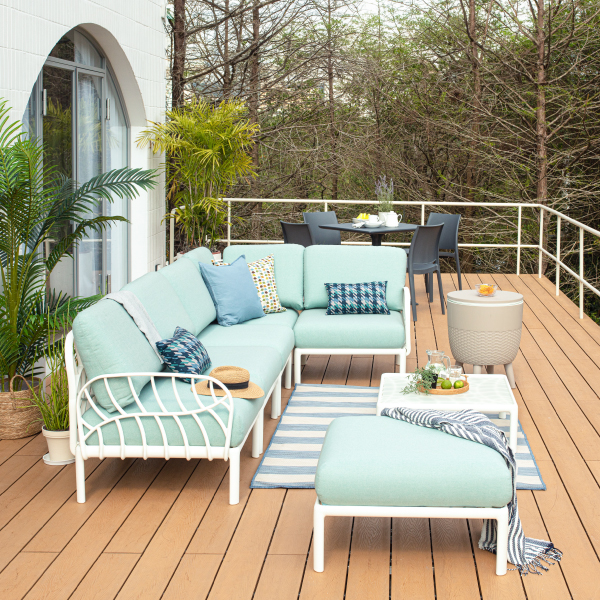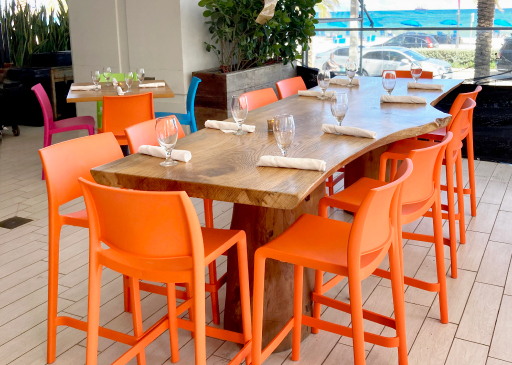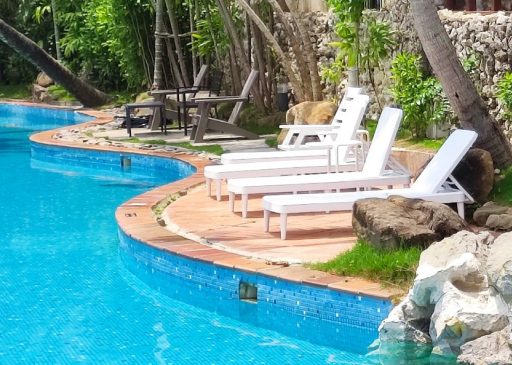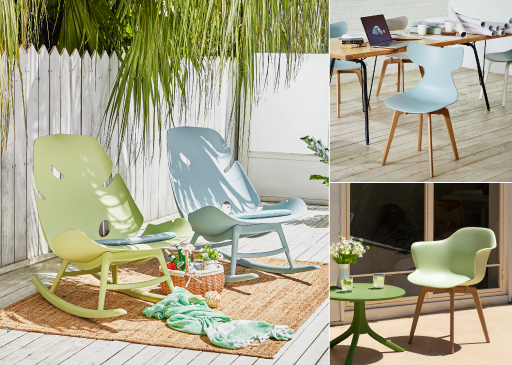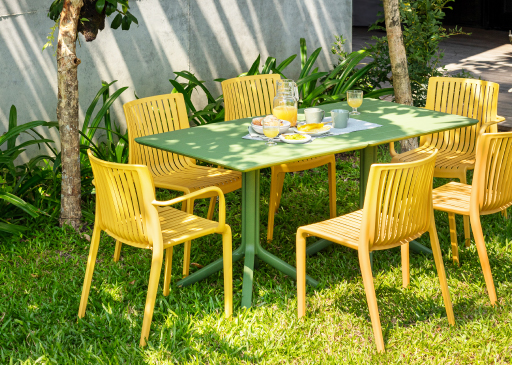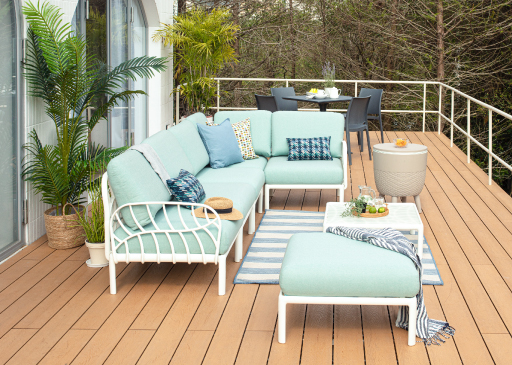What is Contract Grade Furniture?
Contract grade furniture—also known as commercial or business furniture—is specifically engineered to meet strict durability, safety, and performance standards required in high-traffic spaces such as restaurants, hotels, offices, and event venues. Unlike residential furniture, contract grade pieces undergo rigorous testing, including BIFMA and GREENGUARD certifications, to ensure they can withstand continuous daily use, heavy loads, and frequent cleaning. This makes them the ideal choice for businesses seeking long-lasting, safe, and stylish solutions for commercial environments.
Contract Grade Furniture Meaning & Definition
The term "contract grade" refers to business furniture specifically manufactured and rigorously tested to meet high industry standards for durability, safety, and performance. Business furniture labeled as contract grade is explicitly designed to withstand the continuous, intensive use common in commercial environments such as restaurants, hotels, offices, event spaces, and other public venues. Unlike residential furniture, contract grade business furniture undergoes strict quality control processes and rigorous testing protocols to ensure compliance with safety regulations and to reliably withstand daily wear and tear in busy commercial and/or public spaces.
Benefits of Contract Grade Furniture for Businesses
-
Exceptional Durability
Built with premium materials and robust manufacturing, contract‑grade furniture maintains its form and appearance even under heavy daily usage. -
Compliance with Safety Standards
Meets rigorous commercial safety regulations—minimizing liability and protecting customers and staff. -
Cost Efficiency Over Time
Higher upfront investment offsets frequent replacements, saving costs long term through lower maintenance and replacement needs. -
Design Flexibility
Available in diverse styles, finishes, and customizable options to align with brand identity and interior aesthetics. -
High Load Capacity
Engineered for stability and strength, supporting wider body types without compromising safety or comfort. -
Low Maintenance
Crafted from stain‑ and moisture‑resistant materials, enabling easier cleaning and longer-lasting appearance.
Potential Drawbacks & Considerations
While contract grade furniture offers unmatched durability and safety for commercial spaces, there are also some factors businesses should consider before investing:
-
Higher Upfront Cost – Contract grade pieces are more expensive than residential furniture because of their reinforced materials and rigorous testing.
-
Longer Lead Times – Custom designs and compliance with safety standards can extend production and delivery timelines.
-
Design Limitations – Although available in many finishes, some highly decorative or residential-style options may be limited compared to home furniture.
-
Maintenance Planning – Even though these pieces are built to last, businesses still need regular cleaning and inspections to ensure compliance with health and safety requirements.
By weighing these considerations, companies can make informed choices and balance long-term value with short-term constraints.
Common Commercial Settings for Contract Grade Furniture
Contract grade furniture is widely used across diverse commercial settings due to its enhanced durability and functional design. Typical applications include:
- Offices & Workspaces:
Desks, chairs, and collaboration stations designed for ergonomic comfort and long‑term use in dynamic settings.
Materials Commonly Used in Contract Grade Furniture
Contract grade furniture employs specialized materials to meet rigorous demands for strength and durability:
-
Wood:
Often reinforced or treated for enhanced strength and lasting aesthetics. -
Metal:
Provides maximum structural stability—ideal for heavy‑use tables and chairs. -
High‑quality Plastic:
UV‑ and moisture‑resistant plastics suited for outdoor contract‑grade furniture.
Typical Contract Grade Furnishings
The following are popular contract-grade furniture items commonly utilized in various commercial contexts:
- Chairs:
Ergonomic, stackable, and built for repeated use without deformation.
- Tables:
Durable, scratch‑ and stain‑resistant surfaces that stand up to constant cleaning.
- Sofas
Upholstered in durable, easy‑clean fabrics that retain comfort and shape.
- Ottomans
Multi‑purpose pieces for seating, footrests, or storage—offering flexibility in commercial spaces.
Certifications & Industry Standards for Contract Grade Furniture
Contract-grade furniture is often evaluated via various industry-standard tests and certifications which help businesses assess the overall quality, safety, and durability of the products they choose. While not all products necessarily carry every certification, common standards frequently referenced in the commercial furniture industry include:
- BIFMA (Business and Institutional Furniture Manufacturers Association): BIFMA develops safety and performance standards for commercial furniture. Compliance with standards such as ANSI/BIFMA X5.1 indicates that furniture has been tested for strength, stability, and durability to withstand daily commercial use.
- ANSI (American National Standards Institute): ANSI accredits procedures that ensure the integrity of standards developed by organizations like BIFMA, setting design and safety requirements for office and commercial furniture.
- EN Standards (European Norms): These standards establish structural strength and safety regulations for commercial seating and tables within European markets, ensuring products meet specific performance criteria.
- GREENGUARD Certification: This certification ensures that furniture meets stringent chemical emissions limits, contributing to healthier indoor air quality. GREENGUARD Gold Certification offers even stricter criteria, considering safety factors for sensitive individuals such as children, the immune compromised, and the elderly.
- Fire Resistance Testing (CAL 133, BS 5852): These tests evaluate the fire resistance of upholstery and materials used in furniture. CAL 133 is a North American standard assessing the flammability of seating furniture, while BS 5852 is a British standard evaluating the ignitability of upholstered seating by smoldering and flaming sources.
Businesses frequently refer to these certifications and standards as useful benchmarks when evaluating commercial furniture. They can help companies make informed decisions about durability, safety, and environmental responsibility when choosing products for their specific needs.
How to Choose Contract Grade Furniture
When investing in contract grade furniture, businesses should evaluate more than just looks. A smart purchase balances safety, durability, cost, and design. Here are key factors to consider:
-
Certifications & Standards
-
Look for BIFMA, ANSI, EN, GREENGUARD, and CAL 133 certifications to ensure safety and durability compliance.
-
-
Materials & Construction
-
Choose reinforced wood, metal frames, or polypropylene materials tested for heavy use and easy maintenance.
-
-
Durability & Load Capacity
-
Check weight capacity, joinery, and warranties. Contract furniture should withstand high turnover without loosening or breaking.
-
-
Design & Customization
-
Select finishes, fabrics, and colors that align with your brand identity and customer experience.
-
-
Lead Times & Supply Chain
-
Consider production timelines, especially for custom designs, and partner with reliable commercial furniture companies.
-
-
Long-Term Value
-
Weigh the higher upfront cost against savings from fewer replacements and reduced maintenance.
-
Contract Grade vs. Residential Furniture: Key Differences
| Feature | Contract Grade Furniture | Residential Furniture |
|---|---|---|
| Durability | Very high – built for constant use | Moderate – intended for light use |
| Safety Standards | Strict commercial compliance | Standard home-grade regulations |
| Design Options | Highly customizable and brandable | Varied, less flexible |
| Cost | Higher initial cost, low long-term replacement need | Lower initial cost, may require more frequent replacement |
Top Commercial Furniture Companies for Contract Grade Pieces
Choosing high-quality contract grade furniture necessitates partnering with reputable commercial furniture companies specializing in durable, stylish, and practical solutions tailored to commercial environments.
One leading provider is Lagoon Furniture, known for their high-quality outdoor business furniture crafted from premium polypropylene (PP) materials. Lagoon’s commercial furniture offers multiple significant advantages for businesses:
- Superior Durability: Engineered specifically to withstand intensive daily use, Lagoon Furniture products effectively resist many forms of wear and tear, making them ideal for restaurants, hotels, event spaces, and busy commercial environments.
- Weather-Resistant & Easy Maintenance: Their furniture is designed to reliably endure outdoor conditions, maintaining appearance and structural integrity through harsh weather, sunlight, moisture, and frequent cleaning.
- Stylish and Versatile Designs: Lagoon Furniture provides a wide range of design options, ensuring flexibility to suit the aesthetics of diverse business environments and to enhance the visual appeal of commercial settings.
By choosing Lagoon Furniture, businesses can confidently invest in contract-grade furniture solutions that deliver long-lasting value, style, and reliability for their operating environments.
Frequently Asked Questions
Is contract grade furniture better?
Yes—designed for enhanced durability, safety, and high usage environments, contract grade furniture offers significantly greater value for commercial applications than residential alternatives.
What is contract grade furniture used for?
It’s mainly used in restaurants, cafés, hotels, offices, resorts, and event venues, where durability, ease of cleaning, and safety are essential.
What is contract grade material?
Materials must meet strict industry testing and certifications for strength, endurance, emissions, and fire resistance—such as BIFMA, GREENGUARD, CAL 133, and EN standards.
Conclusion
Understanding what contract grade furniture means, along with its distinct benefits, empowers businesses to make informed decisions when investing in high-quality, durable, stylish, and cost-effective business furniture. Selecting reliable commercial furniture companies like Lagoon Furniture, which offer rigorously tested, certified, and commercial-ready furniture solutions, helps ensure long-term value, enhanced safety, and reduced maintenance costs for businesses. Explore Lagoon Furniture's versatile range of premium polypropylene (PP) seating and tables today, and discover why it's the ideal choice to elevate your commercial space's comfort, style, and durability.

